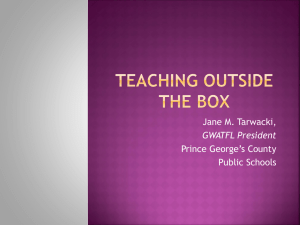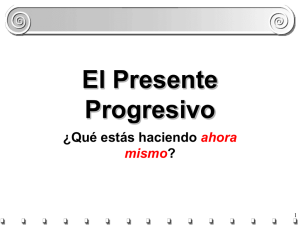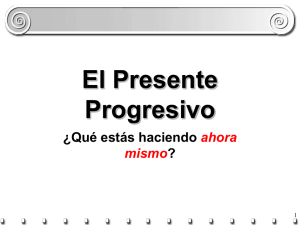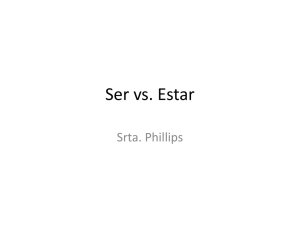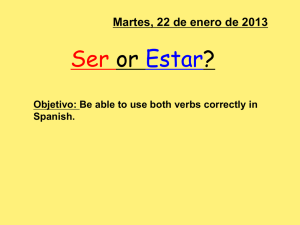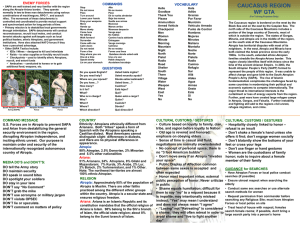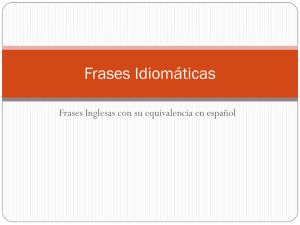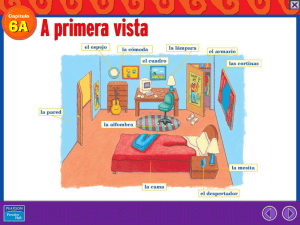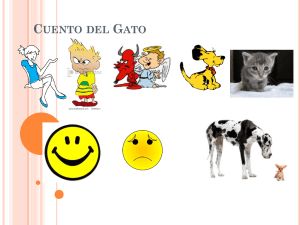El participio pasado
advertisement
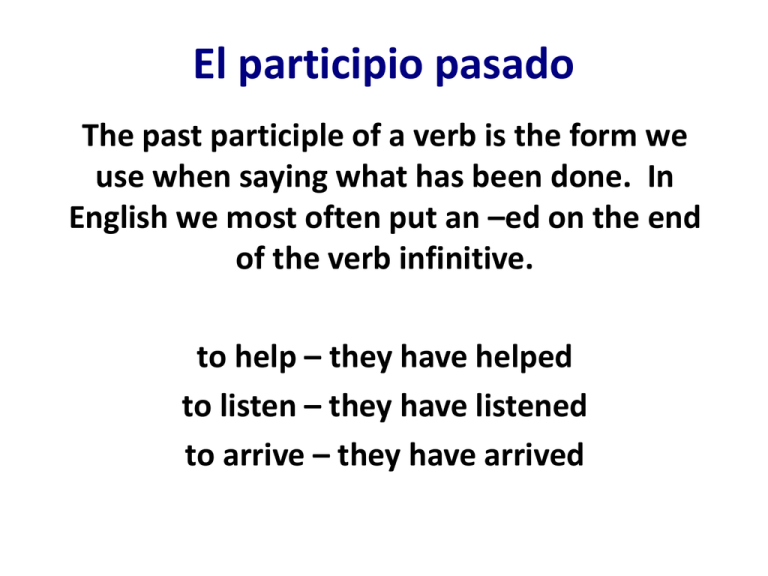
El participio pasado The past participle of a verb is the form we use when saying what has been done. In English we most often put an –ed on the end of the verb infinitive. to help – they have helped to listen – they have listened to arrive – they have arrived El participio pasado Some verbs in English are irregular and have different past participles. Begin Began Begun Eat Ate Eaten Ring Rang Rung Win Won Won See Saw Seen Swim Swam Swum El participio pasado In English we often use the past participle of the verb as an adjective: The store is closed. The window is broken. The broken window will be fixed tomorrow. El participio pasado Spanish does the same thing: La tienda está cerrada. La ventana está rota. La ventana rota se arreglará mañana. To form the past participle: Take the -ar, -er, -ir off the end of the verb and add: -ado for -ar verbs -ido for -er and -ir verbs hablar = hablado comer = comido vivir = vivido Práctica – write the past participle of these verbs: 1) 2) 3) 4) 5) 6) beber tocar descansar correr recibir preparar 1) 2) 3) 4) 5) 6) bebido tocado descansado corrido recibido preparado Obviously, there are going to be some irregulars. Can you predict which verbs are on that list? abrir – abierto decir – dicho poner – puesto freír – frito hacer – hecho imprimir – impreso resolver – resuelto ir – ido morir – muerto escribir – escrito romper – roto ver – visto volver – vuelto cubrir - cubierto Papel de scratch – escribe el español. 1. 2. 3. 4. 5. The post office is closed. The car is repaired. The books are organized. The table is set. The homework is written. Papel de scratch – escribe el español. 1. 2. 3. 4. 5. El correo está cerrado. The car is repaired. The books are organized. The table is set. The homework is written. Papel de scratch – escribe el español. 1. 2. 3. 4. 5. El correo está cerrado. El carro está arreglado. The books are organized. The table is set. The homework is written. Papel de scratch – escribe el español. 1. 2. 3. 4. 5. El correo está cerrado. El carro está arreglado. Los libros están ordenados. (organizados) The table is set. The homework is written. Papel de scratch – escribe el español. 1. 2. 3. 4. 5. El correo está cerrado. El carro está arreglado. Los libros están ordenados. (organizados) La mesa está puesta. The homework is written. Papel de scratch – escribe el español. 1. 2. 3. 4. 5. El correo está cerrado. El carro está arreglado. Los libros están ordenados. (organizados) La mesa está puesta. La tarea está escrita.
